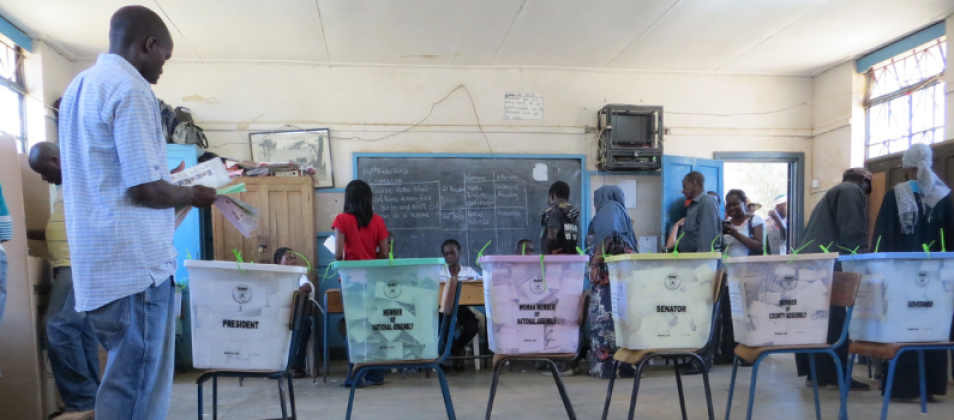The family of a Migori man who is alleged to have hurled a shoe at President William Ruto has broken its silence days after the incident.
On Sunday, May 4, the president’s rally in Kehancha was momentarily disrupted after a man threw a shoe at the head of state, in an appalling act that left tongues wagging.
Speaking to NTV, the family of Paul Mutongori, who is one of the three men arrested over the viral shoe attack, pleaded for forgiveness from the government on behalf of their son, who is still in custody.
His mother spoke painfully, saying she instilled great discipline in her son, adding the incident has left her shocked and apprehensive because Paul is still in police custody.
“I asked one of the young men who was here about my son’s whereabouts, and I learned that he had been arrested. I was shocked because I have always disciplined my children,” the devastated mum said.
While pleading with the president, she said:
“I plead with the president to please forgive him as a father would forgive a son who has wronged him,” she said.
The family described the suspect as a calm person who avoids trouble and is respectful in the community.
“Even if you ask around, they will tell you he is quite respectful to everyone in the community,” a family member said.
Another family member said they hope that investigations will vindicate their son.
“I hope they discover that he is not the one who threw the shoe. I hope they investigate thoroughly because it can also turn out that he did not do it,” he said.

Frustrations over the rising cost of living
The shoe-throwing incident comes amid growing public frustration over economic challenges, including high inflation and recent tax hikes, which many citizens blame for worsening the cost of living and shrinking household incomes across the country.
Basic commodities such as cooking oil, sugar, and fuel have seen significant price increases, prompting complaints from consumers and small-scale traders alike who feel abandoned by policymakers.
Analysts say the shoe-hurling incident may reflect a symbolic act of defiance.
“It’s a reflection of bottled-up anger,” said political commentator Virginia Wanjiru.
“When people feel unheard, such actions, while not justifiable, become expressions of extreme frustration,” Wanjiru said. “The government should view this not as an isolated act of indiscipline, but as a warning sign of deeper societal unrest.”
Over the past year, the Kenyan government has introduced several fiscal reforms, including new tax measures under the Finance Act, which have stirred public discontent.






